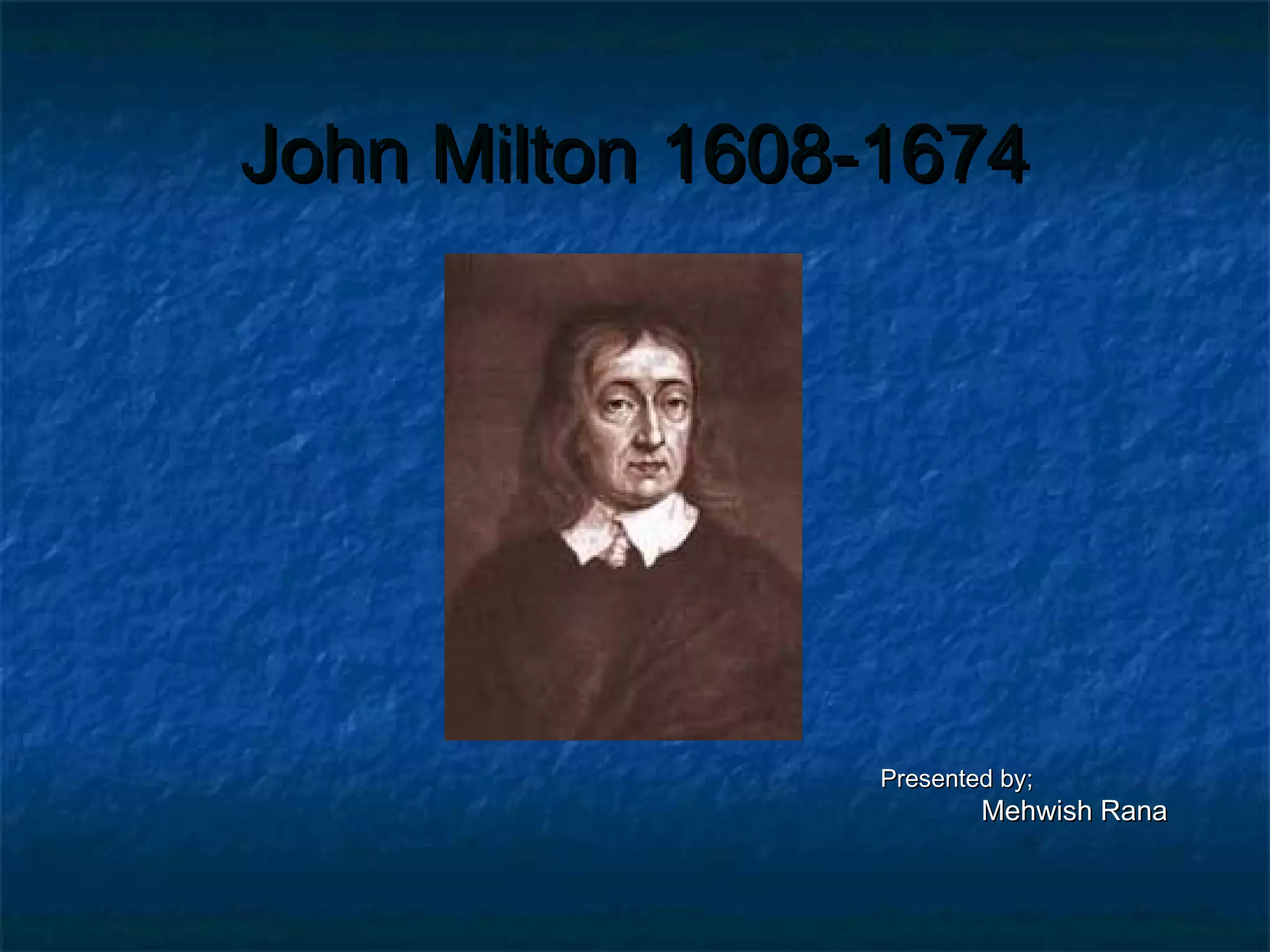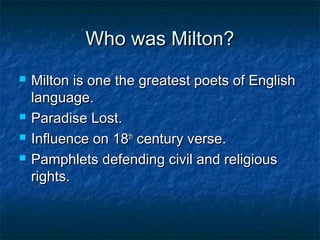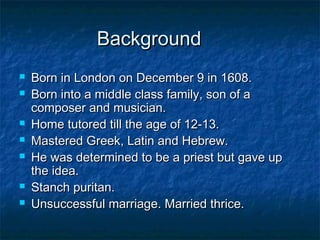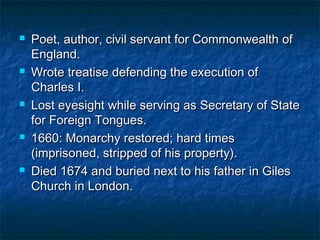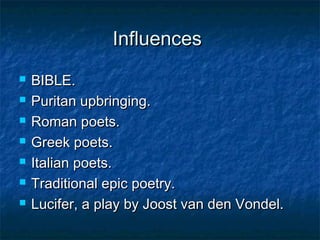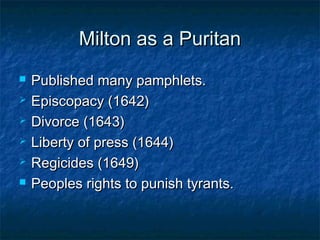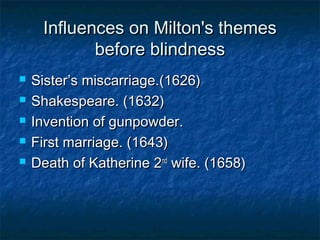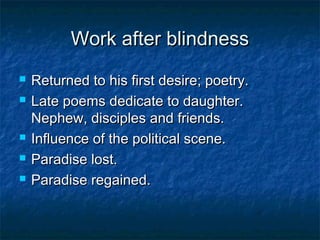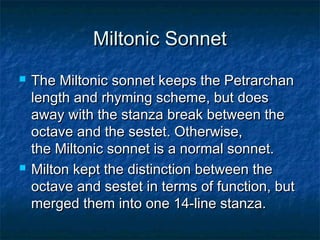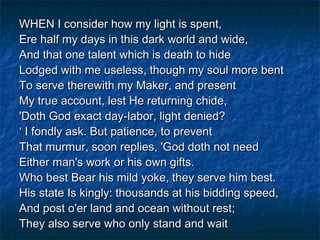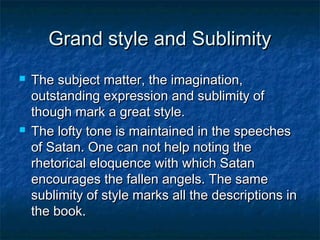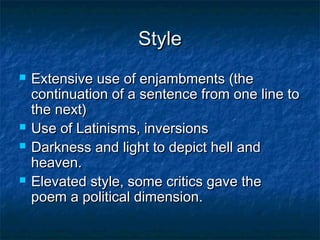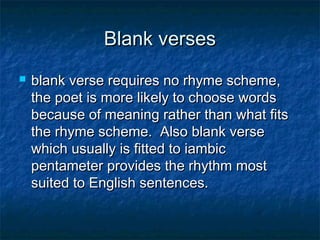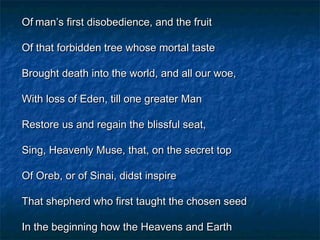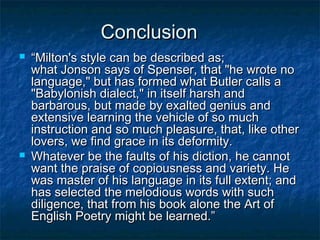John Milton (1608-1674) was one of the greatest English poets, known for his epic poem Paradise Lost. He was a Puritan who wrote extensively on religious and civil rights. Milton was educated in Greek, Latin, and Hebrew and intended to become a priest but did not. He served as a civil servant for the Commonwealth of England and wrote defenses of the execution of King Charles I. Milton lost his eyesight while in office and faced hardship after the English monarchy was restored in 1660. Despite blindness, he went on to write his epic poems Paradise Lost and Paradise Regained using a grand style and sublime themes influenced by the Bible, Greek/Roman poets, and his Puritan upbringing.
